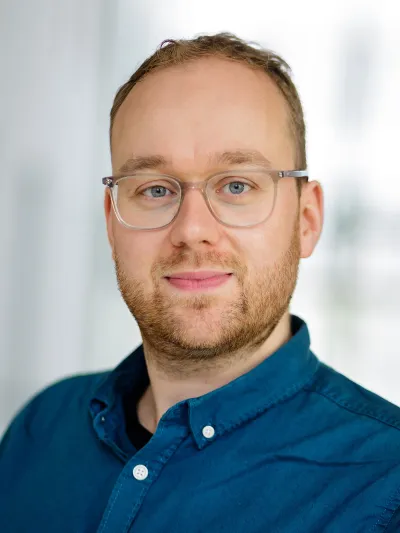Retrospective
Symposium "#FormingSociety in the Digital Age" at the University of Applied Sciences Potsdam
At the symposium "#FormingSociety in the Digital Age", academics and practitioners discussed topics relating to digitalisation in social work and related professions and disciplines.
On the 11th of October 2024, practitioners and academics from social work and related professions and disciplines met at the University of Applied Sciences Potsdam for the symposium "#FormingSociety in the Digital Age". The event was organised by the Digitalisation Research Network North-East, a cooperation between the University of Applied Sciences Potsdam, the Catholic University of Applied Social Sciences Berlin, the Brandenburg University of Technology Cottbus-Senftenberg and the Centre for Constructive Educational Science.
The symposium served as a platform for the four institutions to present the results of their collaboration after a year of joint project work and to further discuss perspectives on digitalisation and digitality in social work with interested professionals. Academics and practitioners took the opportunity to engage in an intensive exchange about the future of social work in the digital age.
Table discussions: Practice and science in dialogue
The symposium was opened by expert table discussions, which enabled a practical exchange on the pressing issues of digitalisation. Discussions included how scientific findings on digitalisation can be effectively integrated into social work practice and how professionals and scientists can develop innovative digital approaches that could meet the needs of clients. This also raised the question of how digital tools are changing social work and what new challenges this poses. There was also the question of the perspective of young people's experiences when using social media and the associated search for common ground between the various stakeholders.
Keynote speeches: Education, power and social media
The table discussions were followed by two keynote speeches that opened up further perspectives on digitalisation for the participants. In his presentation, Prof. Dr. Valentin Dander from the Gesellschaft für Medienpädagogik und Kommunikationskultur e. V. (Society for Media Education and Communication Culture) shed light on the interactions between education and power in the digital society. He emphasised how digital technologies are changing education systems and what role power structures play in this.
Prof. Dr. Nadja Wolf from Fresenius University of Applied Sciences addressed the question of how social work institutions can communicate their activities in the digital space in her presentation "Social work and social media". She illustrated how social work is not only present on the internet, but can also actively utilise digital practices in the midst of everyday digital cultures in order to be effective in the public sphere.
Workshops: Practical and pragmatic approaches to digitalisation
The second part of the symposium was characterised by practical workshops. In three parallel sessions, participants were able to analyse specific topics in depth.
Kristin Ehlert, a qualified social pedagogue and freelance media educator, addressed the topic of "Fakenews & Hatespeech – Media Literacy as the Key to Democratic Competence" with interested participants. In her workshop, she demonstrated how essential it is to strengthen media literacy in today's world in order to counteract misinformation and hate speech and promote democratic values.
Prof. Dr. Daniela Stix from the Brandenburg University of Technology Cottbus-Senftenberg presented in her workshop "Micro projects for in-between - media education impulses for open work" digital-technical and media-based small-scale offers that can be implemented in youth work in order to activate children and young people.
In his workshop "Digital worlds in youth welfare offices", Dr. Bernhard Kohl, academic assistant at the University of Applied Sciences Potsdam and employee in the management of the Berlin-Lichtenberg Youth Welfare Office, addressed the influence of digitalisation on youth welfare. He discussed with the participants how the digital transformation is changing the way youth welfare offices work and what potential and challenges this entails.
Outlook: Continuation and expansion of networking
At the end of the symposium, Dr. Julius Späte, project manager of the Digitalisation Research Network North East, summarised the key findings. The key point of the summary was the need for intensive cooperation between science and practice in order to adequately implement and further develop digitalisation in social work. Späte announced that the second year of the project would focus on expanding the network and transferring knowledge.
The symposium highlighted the potential for future-proof approaches if science and practice recognise the digitalisation of social work as a joint cross-sectional task. Networking and joint dialogue can make it possible to develop innovative solutions to meet the complex challenges of the digital age.
This has already been demonstrated in initial approaches by the joint work in the first project year of the Digitalisation Research Network North East, the results of which were presented in a report at the symposium. The report is available for open access download here.



